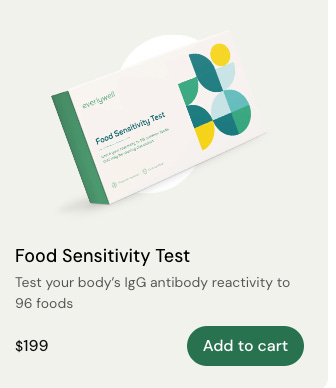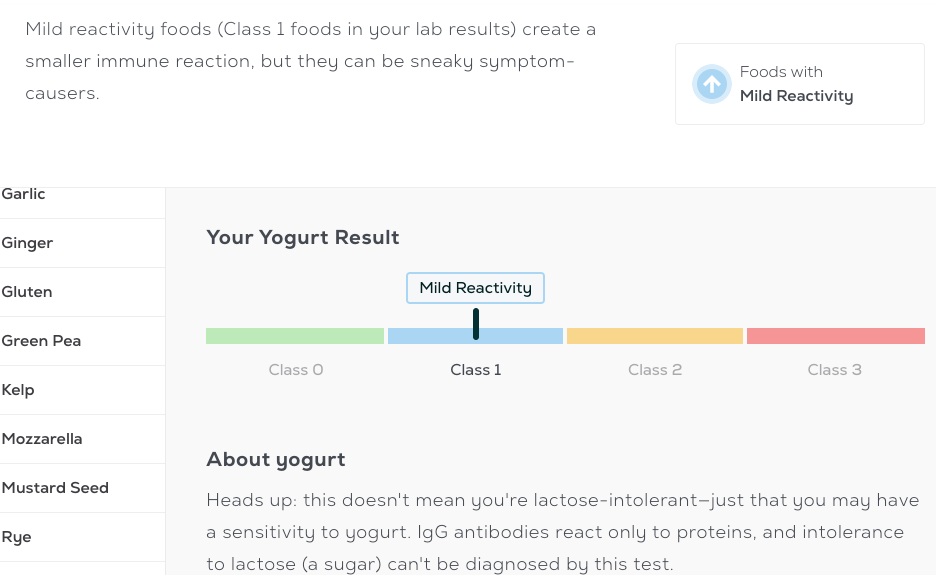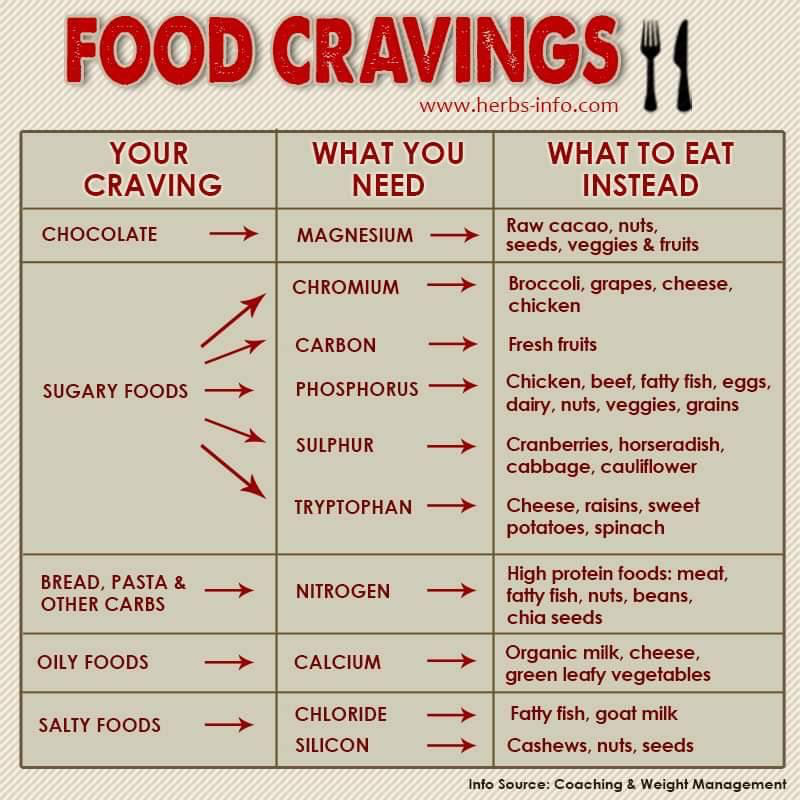Personal Science Week - 240411 Food Sensitivity (2)
More on food sensitivity tests, plus useful links
Last week I reviewed my experience with gut microbiome tests that claim to uncover otherwise healthy foods that might negatively affect my body. But I had mixed results with repeated tests and ultimately concluded that the tests were too variable to make firm conclusions. Foods like eggplant or broccoli were rated high sometimes, low sometimes — it was difficult to see a consistent pattern.
But what about those tests designed to look directly at IgG antibodies from a simple at-home blood test? Do they work better?
Everlywell is among the most popular DTC companies, offering tests of everything from COVID-19 and Lyme disease to heart disease and male/female health. A friend tried their Everlywell Food Sensitivity Test ($200) and sent me her results.
It’s an easy test. You poke your finger and smear the blood onto a card like this one that you mail back to the company.
My friend is generally in good health and decided to take a food sensitivity test for comparison with her husband, who has chronic digestive problems. Surprisingly, the results identified multiple foods she frequently consumes as potentially harmful, indicating they could trigger adverse reactions.
Additionally, the test highlighted a few items causing mild discomfort, suggesting it would be wise for her to steer clear of them.
She had never noticed any particular negative affect from these foods — as I said, she thinks of herself as pretty healthy. Should she start to avoid these foods just in case?
Meanwhile, her husband with the gut issues — the tests all came back negative for any food sensitivities. A clean bill of health!
A person with absolute faith in the science might be grateful that the test revealed a potentially dangerous condition she would have otherwise missed. And it might have caused her husband to consider non-dietary-related tests now that this had ruled out food sensitivity.
But I have a different conclusion: the test isn’t useful. That’s also the conclusion of fellow Substack writer Andrea Love, who explains in detail why food sensitivity tests don’t work. She points out that real food allergies are relatively rare — only a few percent of the population. Much of the concern over “sensitivities” is really an intolerance to specific foods.
Food sensitivity tests are based on measuring immune IgG levels, and they’ll cite scores of clinical studies as evidence for efficacy. But look closely, for example, at the main study claimed by proponents and note that it’s based on self-reported symptoms in patients with serious, confirmed gut issues. Even then, the differences weren’t all that significant. In other words, for most of us it’s not clear those IgG tests will do much good.
“DNA Diets” Aren’t Much Better
Peter Attia dives into the research from the POINTS Personalized Nutrition studypublished by Höcshmann et al. in October 2023. More than 100 genotyped subjects were placed into a 12-week randomized control trial diet that supposedly was targeted toward their propensity to be “fat responder” or “carbohydrate responder”. Everyone lost weight — a common result from just about any rigorously-followed diet — but there was no particular reason to think the loss was related to their genetics.
Peter Attia says:
To find out whether you control weight better on a high-fat or high-carbohydrate diet, trying each diet for yourself will provide an answer that is far more reliable, cost-effective, and efficient than getting a genetic test.
For now I conclude these tests are a waste of time and money, but I’d love to be proven wrong. If you’ve tried one of these and found it useful, please let us know.
Better ways to decide which foods to avoid
You don’t need a sensitivity test to know that it’s a bad idea to consume pesticides. There are government agencies that set the maximum values permitted in commercial products, but who checks to ensure food distributors are keeping their products within those limits? The Environment Working Group is an independent organization that systematically tests grocery and produce items with more detail than the US government. Last month they announced their annually-updated Dirty Dozen fruits and vegetables with the highest pesticide levels:
Grapes
Nectarines
Bell and hot peppers
Cherries
They get their data from the USDA Pesticide Data Program, which conducts nationwide studies of more than 100 agricultural food items. You can search their database for specific toxins and foods.
More Food-Related Links Worth Your Time
“Sweden’s first clinical trial”: in a mid-1700s attempt to prove that coffee is poison, one convict was forced to drink coffee and another to drink tea. See King Gustav’s Coffee Trial
Yes there is lead in a Stanley Quencher but it’s hidden between the inner and outer vacuum-packed shells so it’s impossible to reach your drink. This link contains a fascinating breakdown, with CT scanned images, of how the cup is constructed. (via @jonbruner)
About Personal Science
Be open-minded but skeptical. That’s what we do as we try to bring the rigor of science to our everyday lives.
We publish this short newsletter each Thursday, free to anyone who likes to use science in their daily lives. Paid subscribers have additional access to our Unpopular Science series, which includes information about controversial science topics that are too touchy to post publicly, such as the differences between boys and girls.
If you have other topics you’d like to cover, please let us know directly by email or leave a comment.








